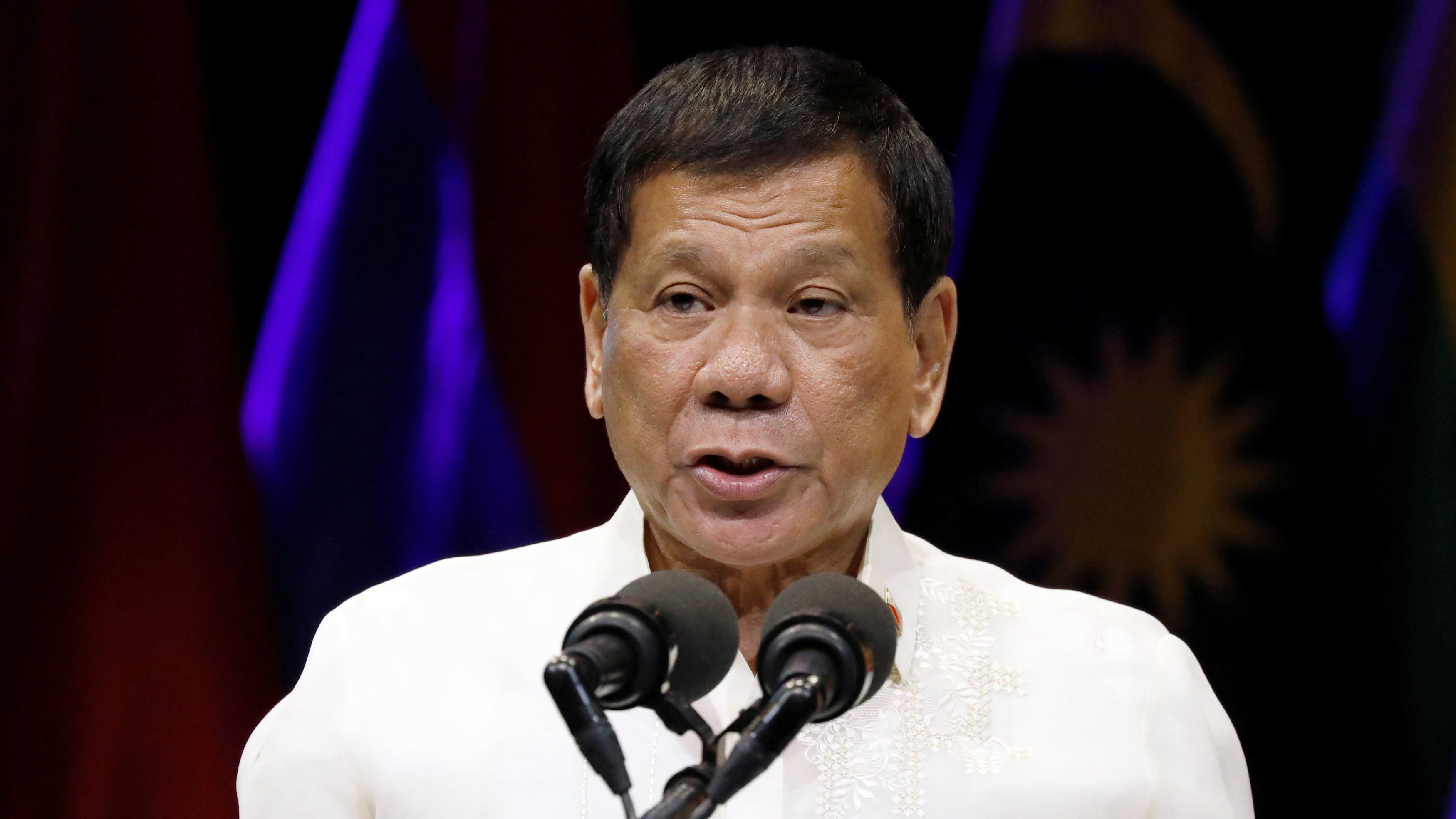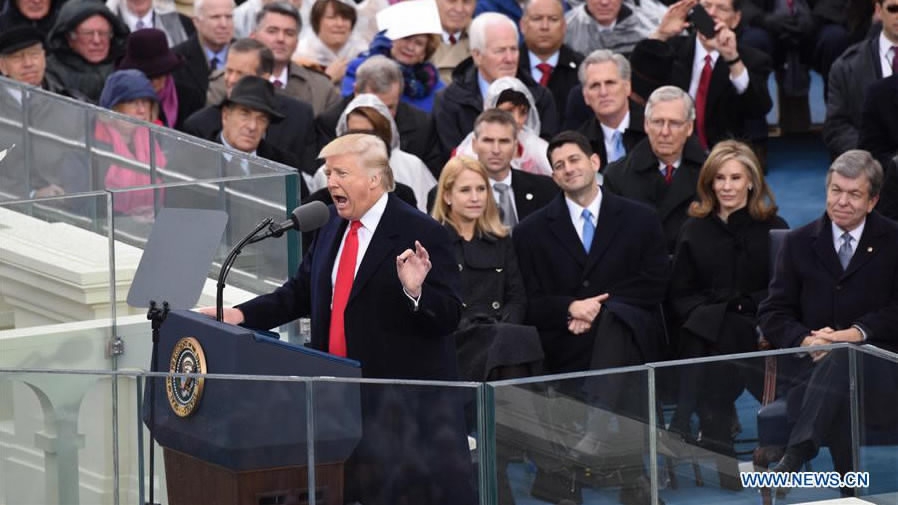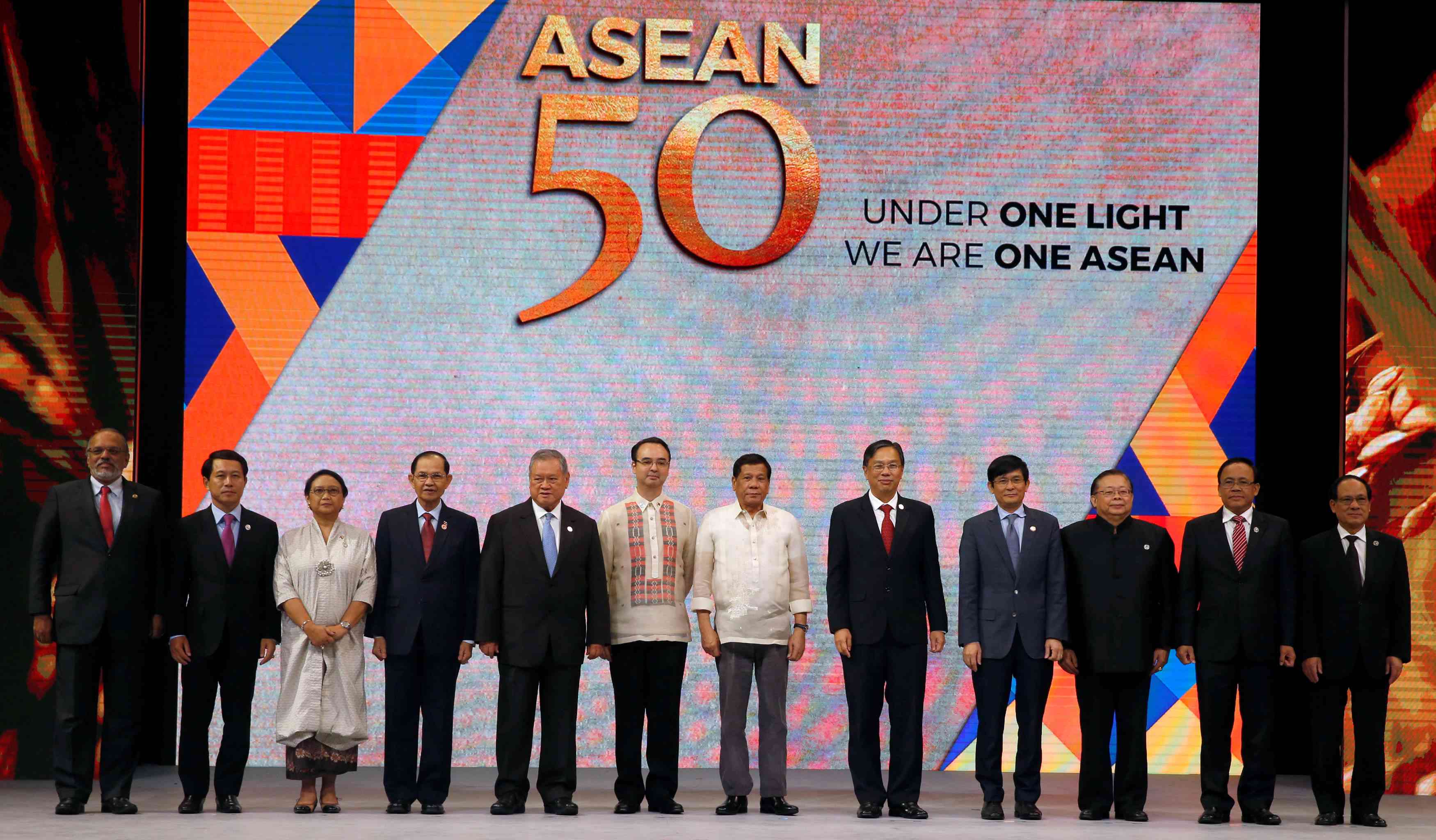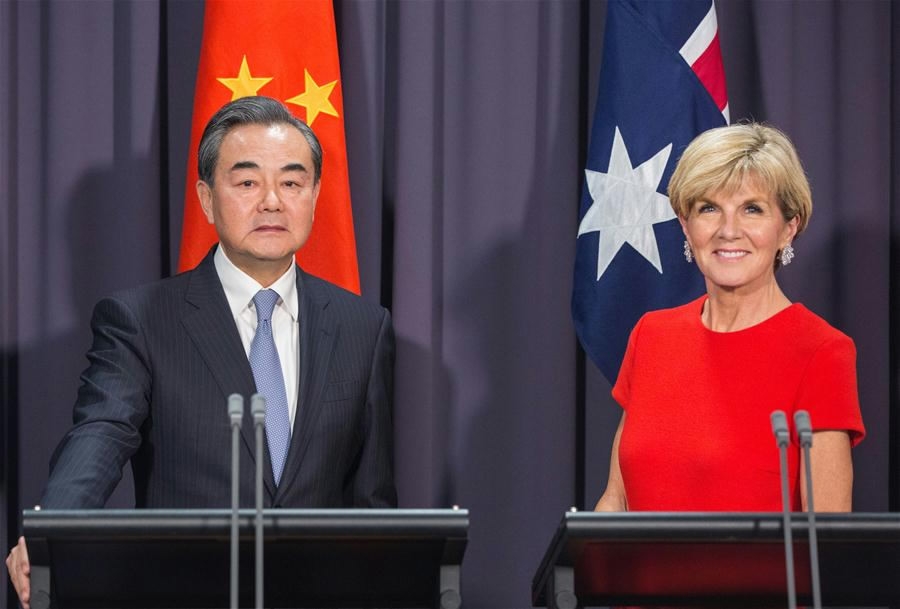
Politics
17:34, 08-Aug-2017
Philippines' Duterte takes swipe at US in free trade call

Philippine President Rodrigo Duterte on Tuesday took a swipe at the Trump administration's retreat from a major free trade deal, joining Asian nations at a forum this week in criticizing rising protectionism.
Until recently China and the US were both pushing sweeping free trade deals that excluded each other.

Donald Trump delivers his inaugural address after he was sworn in as US president during a ceremony at the US Capitol in Washington DC, the US, on Jan. 20, 2017. /Xinhua Photo
Donald Trump delivers his inaugural address after he was sworn in as US president during a ceremony at the US Capitol in Washington DC, the US, on Jan. 20, 2017. /Xinhua Photo
But shortly after taking office in January, US President Donald Trump withdrew from the Trans-Pacific Partnership (TPP) which he described as a "job killer".
The move delivered a hammer blow to the 11 other nations who spent seven years negotiating what was billed as the world's largest trade deal.
During a speech celebrating the 50th anniversary of the Association of Southeast Asian Nations (ASEAN) in Manila, Duterte gave his backing to a planned trade pact backed by China known as the Regional Comprehensive Economic Partnership (RCEP).

Philippine President Rodrigo Duterte (6-R) poses with the ASEAN Foreign Ministers during the closing ceremony of the 50th ASEAN Regional Forum (ARF) in Manila, Philippines August 8, 2017. /Reuters Photo
Philippine President Rodrigo Duterte (6-R) poses with the ASEAN Foreign Ministers during the closing ceremony of the 50th ASEAN Regional Forum (ARF) in Manila, Philippines August 8, 2017. /Reuters Photo
"ASEAN has a bigger stake than any part of the world in standing up against protectionism and securing the rules of the game in the international trade," he told delegates.
RCEP, he said, "will provide further impetus to our efforts", adding he hoped negotiations on the Beijing-led deal "should conclude swiftly".
He then added a jab over TPP's collapse.
"(I'm) reminded that the Transpacific, it was a dream, is no longer there," he said.
Before Trump's withdrawal, TPP would have covered 40 percent of the global economy.
It went further than most existing free trade pacts, with labor laws, environmental protections and intellectual property rights touted by backers as a new gold standard for global trade.

Chinese Foreign Minister Wang Yi (L) and his Australian counterpart Julie Bishop meet the press in Canberra, Australia, Feb. 7, 2017. /Xinhua Photo
Chinese Foreign Minister Wang Yi (L) and his Australian counterpart Julie Bishop meet the press in Canberra, Australia, Feb. 7, 2017. /Xinhua Photo
Pushed by China, RCEP is a more modest deal that prescribes lower and more limited regulatory standards.
The pact would group China with the 10 ASEAN members plus India, Japan, South Korea, Australia and New Zealand.
Throughout the security forum of regional foreign ministers that ended on Tuesday, multiple countries voiced specific concerns about rising protectionism, including Japan, South Korea, China and the 10-member ASEAN bloc.
(Source: AFP)
2848km

SITEMAP
Copyright © 2018 CGTN. Beijing ICP prepared NO.16065310-3
Copyright © 2018 CGTN. Beijing ICP prepared NO.16065310-3